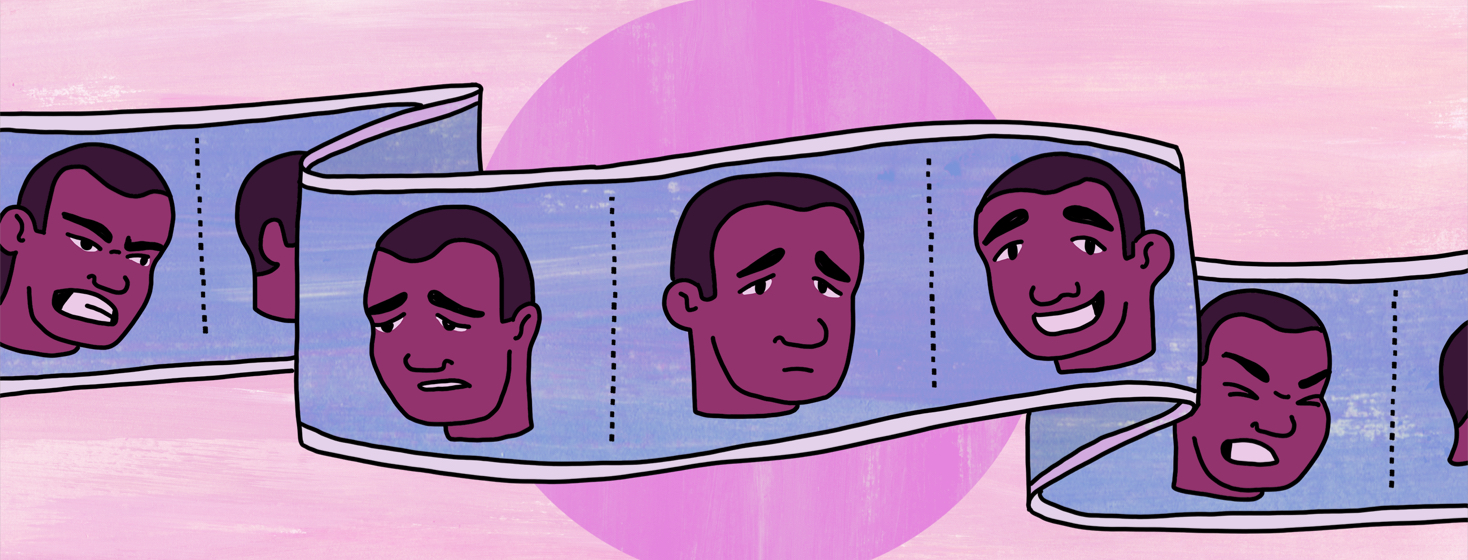Cancer Is A Disease of Feelings
All the feels. Cancer, and especially blood cancer, is so dependent on feelings that I wouldn’t be surprised to see it sitting on the couch with a pint of ice cream, wrapped in a Snuggie (also known as a slanket) watching Lifetime. So much of what we experience as cancer patients, and how we determine what’s happening to us, comes from the feels we experience that it’s difficult to put what’s happening into words for the benefit of other people. This is something that is difficult for anyone who hasn’t lived it to understand about blood cancer, and cancer in general.
“Today is going to be a bad day.”
“Oh, why? How do you know?”
“Umm, I just know. I can feel it.”
How many times have you had an exchange like that in the tenure of your journey with blood cancer? More than a few, I’d bet.
Having a bad day
A significant part of the metrics we use to determine just what we are in store for that day come from how we feel when we wake up. Sure, I can quantify some of the symptoms like mouth sores, body aches, bone pain, and nausea, but even if I know that those specific things are making my day worse, it doesn’t take into account the exponential synergy of misery that happens when the bouillabaisse of symptoms combines to make one giant stew pot of wretchedness that is much greater than the sum of its parts. Many times the only way to determine just how bad things are is to, well, “feel” it.
More than the 10-point pain scale
Of course, this whole thing of “feelings” and “just knowing,” doesn’t sit well other humans, and it definitely doesn’t sit well with doctors and other medical professionals. Both of those groups like things to fit squarely into nice little boxes and have them easily quantifiable on neat little scales of 1 to 10.
Doctors and nurses, especially, are in full-on, flat-out, Romeo-and-Juliet level love with those horrible 1 to 10 scales and use them whenever possible. Unfortunately, unless you have lived with cancer in all of its glorious misery, it is impossible to truly understand what it’s like, and any efforts to nail it down are futile, in my mind.
The emotional and mental toll is as great as physical symptoms
We’ve talked about the physical part of cancer and chemo, and what it’s like to deal with the “feelings” of such, but there is a whole complimentary side to that, and it’s all psychological.
The emotional and mental side of living with blood cancer is just as vital to consider and can affect the body just as much as the physical. This is part of the reason that doctors stress that all-important “positive outlook” so much when they talk about how to increase your chances of a successful outcome. It’s because they know that the mind can affect the body, and there have been many studies over the years that have proved this, but I think the most compelling evidence is true is what happens to us when we start down the inevitable path of depression, fear, and anxiety that comes with cancer.
Fighting off the mind demons
Look, we can all put on as brave a face as we want but the truth – the 2-am, no one else around, fed-up with frustration and pain, truth is that all of us, at some point, fall prey to what I like to call the “mind demons.” Those thoughts of, “why me,” and “what if,” and “how can I ever?” that hit us like a 100-ton weight when the stress and anxiety of cancer just become too overwhelming.
It happens to everyone, even the most upbeat and stoic among us, and frankly, it’s normal and I’d be worried if you didn’t have these types of thoughts. It’s cancer, after all, and you are a human being – cancer is scary, stressful, and life-altering so it’s natural to be given pause over the fear of something as big as blood-cancer.
Pushing through the anxiety
We do what we can to stave it off for as long as we can, but when it hits, we push through and continue on – why? Because we have to. There’s just one problem, though. Stress, anxiety, and fear are, obviously, about as good for your health as smoking a cigarette covered in butter while BASE jumping without a backup parachute. Yeah, it’s not good.
Anyone who says cancer isn’t a disease of feelings doesn’t understand at a fundamental level what living with cancer is like. The physical feelings of symptoms that cannot be fully put into words that are dealt with on a daily basis, and the mental feelings that come and go, some good, many bad, that make recovery so much more difficult even after chemo ends.
Cancer is inextricably tied to both – the physical and mental, and the more we succumb to the bad ones, the worse things can get in an exponentially increasing feedback loop, or, in layman’s terms – the worse you feel, the worse you feel. So, we do our best to keep our feelings in check but, sometimes that just isn’t possible. Cancer is a disease of feels, and we experience them all. Talk soon.

Join the conversation